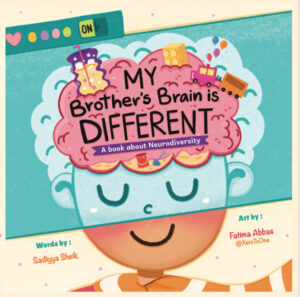
Tasmi Quazi-Bodhanya
The Netflix documentary “Blood Brothers” is a riveting must-watch film in the wake of the resurrection of the Black Lives Matter movement, which needs more solidarity. More important to support as Muslims that prides justice, Malcolm X’s words resonate even today! It is important to demystify the past of two contemporary leaders, Malcolm and Boxing legend Muhammad Ali in their respective fields, that of politics and boxing. Both Muslims, so in essence one strengthens one’s imaan by correcting a historic fallacy in their fallout.
The two men forged a short lived friendship that put white America on notice of what a “Free Black Mind” could achieve. In the extraordinary Netflix documentary based on a book, the director digs further into the men and their political and social environment, with archival material and first-hand accounts from Malcolm X’s daughter Ilyasah Shabazz, Muhammad Ali’s younger brother Rahman and several others who knew them.
Firstly, both men changed far more than their faiths: they changed their given names from Malcolm Little into Malcolm X and Cassius Clay into Muhammad Ali. Both men powerfully shed light on pervasive and subtle forms of racial injustices that continues to this day! As seen through Eric Garner in 2014 and as recently as George Floyd in 2020, both whose ghastly experiences of oppression coined the expression “I can’t breathe”.
Secondly, there have been critiques that the yearning of reconciliation between the two powerhouses could have been shown through their respective children. The fact that Malcolm X’s daughter Attallah Shabazz spoke as powerfully as she did at Muhammad Ali’s funeral service was enough. Her words helped provide a crucial puzzle piece to the past.
Many wrote that Muhammad Ali turned his back on Malcolm X in 1964. However, Attallah Shabazz provided a counter-narrative, one that consisted of a deeply paternal and loving decades long relationship after Malcolm X’s death. Muhammad Ali was there for her and her siblings in a manner that speaks to a bond that couldn’t be broken by any organization. Therefore, Muhammad Ali spent his remaining days regretting not having reconciled with the slain leader, Malcolm X.
Now all we can do is reflect on who Malcolm X and Muhammad Ali really were, and how we can be like them..? Malcolm X was a reformed human rights champion enlightened by his journey to Haj that began championing exclusively Black people. Therefore, there is space for growth regardless of how far you are on the path. You just have to be perpetually open to it! Muhammad Ali was a fighter in every sense of the word, but in the end, was waylaid by his version of the truth.
With regards to our current post-Eric Garner and George Floyd times, they would encourage people to awaken to their sordid reality of pervasive inequality as an entrenched system. It is proof that it existed in their time and continues to this day, and must be addressed boldly. Lastly, the struggle for justice in racial equality remains, as justice is a central theme in Islam.
Most importantly what can we draw on from this narrative in the South African context, juxtaposing our particular complex dynamics of plurality in racial and socio-economic inequalities? We need to face some hard truths. We live in deep divides of racial and class difference. Malcolm X and Muhammad Ali both used their faith as a springboard for fighting for justice.
In the case of Muhammad Ali as a world-class boxer; he transcended poverty, through a multi-million-dollar purse for each world title fight. Yet his faith kept him grounded to use his privilege, fame and material resources for social justice. And in the case of Malcolm X, his faith drew him into justice, even if it was against himself. He completely overturned his previous views that white people were devils. He developed into a true anti-racist where it was not your skin colour that mattered but your world-view; your quality of character, your taqwa and self-vigilance, and acknowledging that all power belonged to God – and hence your fight for justice was because your faith demanded it.
Herein lay deep lessons for us as South Africans in general and Muslims in particular. Bring it back to an agreed essence of humanity regardless of nationalist, political, gender, social and economic statuses – over greed in all forms! We must be willing to sacrifice to achieve equality.
*Tasmi Quazi-Bodhanya is a Master’s graduate of Development Studies. She served as a Researcher in an award-winning NPO in Durban’s inner-city that focused on increasing the legitimacy of the livelihoods of Informal Workers.






